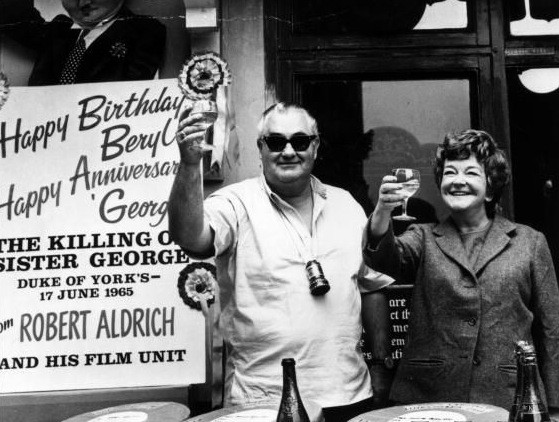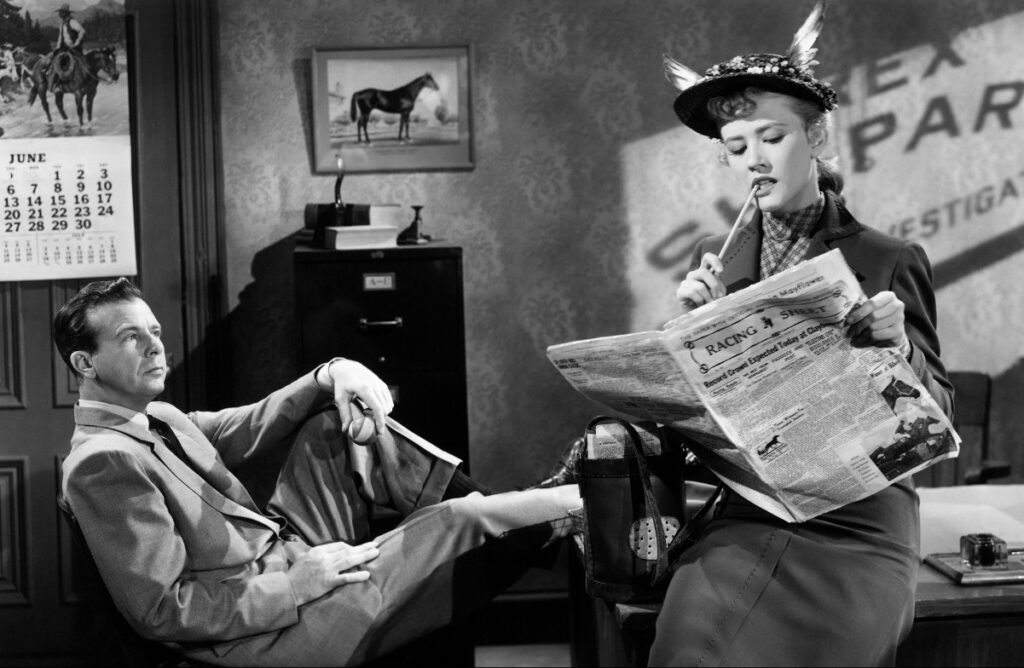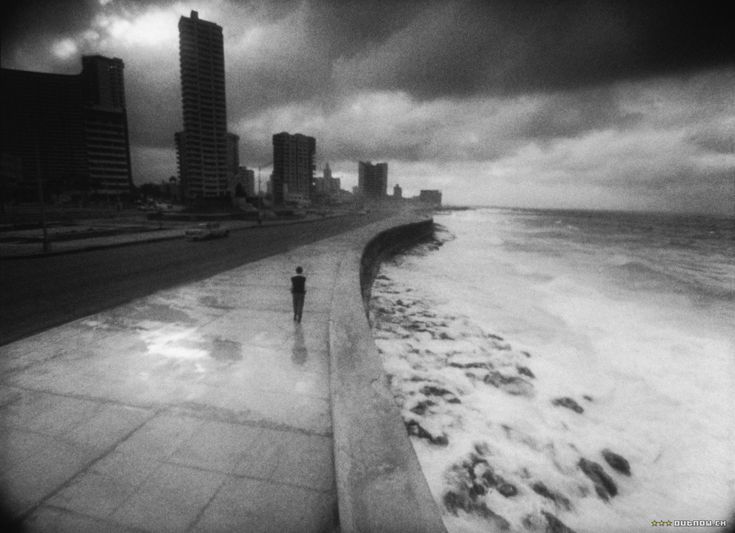Robert Aldrich’s ground-breaking lesbian melodrama The Killing of Sister George comes to Blu-Ray from Kino. It’s not a rousing crowd pleaser like some of Aldrich’s action films. Nor is it the scandalous film critics made it out at the time, but it is definitely a film for adults, and it isn’t always easy to watch. It’s based off of a new 4K scan that carries some caveats but should please fans of the film.
The Production: 4/5
I love Robert Aldrich movies. Aldrich is my favorite post war Hollywood director. Aldrich directed many great movies, Kiss Me, Deadly, Whatever Happened to Baby Jane?, Hush, Hush Sweet Charlotte, The Dirty Dozen, Emperor of the North, and The Longest Yard. He made a lot of unsung classics that include Vera Cruz, The Big Knife, Attack, The Flight of the Phoenix, The Grissom Gang, Ulzana’s Raid, Hustle, and Twilight’s Last Gleaming. Even in what are considered his weaker films like Autumn Leaves, The Legend of Lyla Claire, The Frisco Kid, and his last movie …All The Marbles there are points of interest. I recently watched the Siskel and Ebert review of …All The Marbles online. Both panned it mercilessly and surprisingly didn’t event mention Aldrich’s name. This sort of oversight I would expect from Siskel, but from Ebert? Andrew Sarris included it on his best of the year list.
Aldrich was always unpredictable and because of his fierce independence was one of the few directors working within the Hollywood system that never seemed to take on projects he didn’t believe in – even if the final product didn’t measure up – Ten Seconds to Hell, The Last Sunset, Four for Texas – one can see why Aldrich was attracted to the material.
Aldrich is remembered primarily as a director of individualistic, male-themed action movies. The Killing of Sister George with its predominately female cast and lesbian themes at first glance seems atypical and is generally considered one of Aldrich’s lesser titles. On this viewing I found the character of June Buckridge to be similar to lead characters found in other Aldrich films as well as thematic similarities to other Aldrich titles. The Aldrich movie it most resembles to me is The Big Knife, based on Clifford Odet’s play about Hollywood studio corruption.
The Killing of Sister George tells the story of a fan favorite BBC soap opera actress, June Buckridge (Beryl Reid) whose professional and personal life simultaneously are destroyed. Buckridge portrays Sister George, a beloved motor scooter riding character on a popular long running soap opera set in a small English town. Buckridge has been playing George for over a decade and has become so identified with the character that when recognized in public she is called and joyfully responds by her character’s name.
In the soap opera George appears to be an eccentrically asexual but altruistic character much admired by the fictional community. In real life, Buckridge is nothing like George; she is difficult, vain, professionally paranoid and loud, given to coarse language and humor and is anything but asexual. She lives with and supports a younger woman Alice (Susannah York) who June calls ‘Childe.’ June and Alice are a complicated couple; seen externally they resemble a conventional heterosexual couple of the era in that June plays the male/breadwinner role and Alice plays the female/homemaker role.
But their age/power difference reveals a darker element to the relationship, one built on illusion, like the relationship between George and Martha in Who’s Afraid of Virginia Woolf? There is a sado-masochistic side to the relationship that revolves around power. June is the ‘adult’ as she is older and more powerful, earning a living while Alice/Childe is child-like, staying at home with her doll collection. The question of who really is emotionally in charge is explored as the relationship unravels.
One of the funniest scenes of the movie occurs right after the credits when a drunken June forces her way into what she believes to be an open taxi only to find two young and attractive nuns, and immediately starts pawing the young women. What is believed by June to be nothing, but harmless fun is the inciting action that ultimately undoes June/George’s life. This scene is interesting in that it illustrates not only the changes in sexual attitudes over the last 50 years, but that it also illustrates the hypocrisy of the era; would June’s ‘romp’ with the nuns have been overlooked had she been a straight male star? June’s open sexuality is certainly one of the instruments of her downfall.
Aldrich cleverly cuts between scenes of June as Sister George in the soap opera with scenes of June in real life. These scenes illustrate the difference between the illusion of theatre and reality of life. June has played George for so long that it appears that she too is confused by the difference and mistakes audience affection for George for public acceptance of June.
It is soon after the taxi incident that June gets a visit from BBC executive Mercy Croft (Coral Browne) regarding her behavior. Seen from Croft’s point of view, the June/Alice relationship is unhealthy, and she immediately takes an interest in Alice’s welfare. It is only later that Croft’s hypocrisy and malevolence is revealed.
The Killing of Sister George is based on a play by Frank Marcus. It is a character study and so there is not a lot of plot. I have not read the play, but according to both of the audio commentaries included, Aldrich and script writer Lukas Heller, change the tone of the piece from that of what sounds like a campy drawing room comedy to that of near tragedy.
June is the only ‘authentic’ character in the piece. She is true to herself and is undone by her honesty. This is obviously what attracted Aldrich to the play. Aldrich made several movies set in and out of show business with flawed, uncompromising characters that test audience sympathy – their honesty or integrity being their redeeming quality. In these movies, it is the clash of the individual with a corrupt and hypocritical system that destroys the protagonist. June is surrounded by people jockeying, either overtly or covertly for power and security whether at work, or as we later learn, at home. June’s one honest relationship is with a prostitute neighbor, Betty (Patricia Medina).
Much is made of the infamous lesbian ‘love’ scene between Alice and Mercy. Critics attacked Aldrich for its lack of eroticism. I think they missed the point of the scene. It isn’t supposed to be tender or erotic. It isn’t so much a love scene as a consummation of a business transaction between the two women. Alice, knowing her security is under threat as June’s career is declining has traded up – executives have much longer, more financially secure careers than talent. Her mercenary act of betrayal is that much more odious because it is her new hypocritical benefactress who is her current provider’s undoing. Aldrich is unfavorably contrasting Alice’s dishonest prostitution with Betty’s honest prostitution.
Aldrich’s treatment of gay life is actually very sympathetic for the era. He films a scene in famous London gay club that was not in the play. It is here that we learn what is going on between Alice and Mercy and if anything is alarming, it is the presence of the repressed Mercy in this environment. The atmosphere and patrons are not depicted as grotesque, comic or negative – the club is shown as a safe place for a community that was not allowed such openness in public. There’s a brief scene in a restroom between a distraught Alice and a concerned stranger that is perhaps the most ‘human’ interaction in the movie.
Robert Aldrich made a boat load of money off of The Dirty Dozen. Enough in fact, to buy his own studio. This must have been a dream come true for someone as independent as Aldrich as it meant no longer having to answer to crass and stupid studio executives. This independence turned out to be short lived as Aldrich’s first two indie projects, The Legend of Lyla Clare and this film turned out to be financial disasters. One has to applaud Aldrich for the daring of such choices as it illustrates, dare I say, a romantic sensibility that believed audiences sophisticated enough to embrace these uncommercial projects.
Beryl Reid is excellent as June/Sister George. Reid played the role on stage in both London and New York. Reid never shies away from the character’s flaws. June is the kind of character that one sometimes encounters in life; a hoot to drink with, but impossible to live or even work with. She is petty, jealous, obnoxious, funny, talented, vulnerable, and completely honest. What actor wouldn’t want to play such a meaty role? Susannah York has the toughest role, because of the duplicity and inner turmoil of her character. Her performance is usually criticized for its blandness, but perhaps that is what makes the character so dangerous? Alice comes across as child-like but is forever stalking prey. Coral Browne as Mercy Croft is fabulous. Her proper English Lady façade masks a sexually repressed monster who is not above destroying a competitor’s life in order to steal her younger lover and justify as an act of mercy. She is truly frightening.
Being set in London and its subject, this is a bit of an oddball production for Aldrich because it doesn’t contain much of his in front of or behind the camera stock company. In David Del Valle/Michael Varrati commentary they claim that Frank DeVol, Aldrich’s usual film composer passed on the project due objections over the lesbian themes. He is replaced by Gerald Fried whose score is appropriate. Aldrich’s favorite cameraman, the underrated Joseph Biroc (It’s a Wonderful Life, Forty Guns, Hush, Hush Sweet Charlotte, Blazing Saddles, Airplane!) is along and contributes his usual strong photography.
Video: 3.5/5
3D Rating: NA
Kino has released The Killing of Sister George in what they are advertising as a new 4K scan off of the original camera negative. I have never seen this film projected in 35mm and it certainly looks better than any other video release I’ve seen. That said, the color timing seems erratic to me. It sometimes shifts from shot to shot. Some shots look much better than I would expect for a film of this era with deep saturated color while other shots look pale and faded. It’s usually not too noticeable but it’s there. I’m also not sure if any clean-up was performed but I don’t recall seeing any noticeable damage.
Audio: 4/5
The sound is DTS-HD Master 2.0 and like the visuals, sounded better than I have ever heard it before.
Special Features: 2.5/5
Extras include:
Two commentaries; one by Kat Ellinger and the other by David Del Valle and Michael Varrati. Both commentaries are disappointing, and both rambled on, sometimes pointlessly. Both commentaries covered the story about the BBC radio actress that inspired Marcus’ play. Neither commentary gives enough production history for my taste, and far too much speculation. Both make some unprovable statements; Ellinger says Cary Grant was gay as if this is an accepted fact. He may have been, but it still seems like gossip to me. I believe Grant successfully sued (or threatened to sue) people who made that claim while he was still alive. Del Valle’s commentary is particularly disappointing because of the lack of substance. He knew Coral Browne through his relationship with her last husband Vincent Price, and while he says how wonderful, or witty, or whatever she was, he never tells a personal anecdote to back those statements up. Del Valle also says two things when talking about Gay Cinema that I would take exception with; first he claims that the Vincent Price character in The Abominable Dr. Phibes is gay. And his reason for this is the mute female assistant?! I’m not sure what that has to do with anything, but Phibes’ motivation is avenging the medical malpractice death of his late wife! Second, he talks about the gay subtext of the Laurel and Hardy relationship when discussing the scenes of June and Alice dressed as the duo. I think he misses the point there too, as Laurel and Hardy are not sexually, but emotionally dependent on one another. Their relationship is that of two children. In that sense, they are pre-sexual. Maybe Aldrich’s point of using Laurel and Hardy is to dramatize the state of June and Alice’s relationship – perhaps Aldrich is saying that the passion is missing in the June and Alice relationship and all that remains is a neurotic emotional attachment?
A few trailers for Aldrich and other films released by Kino.
Overall: 4/5
It is great that Kino is releasing an obscure title like The Killing of Sister George. On this viewing I think I too had underrated this film in the past. I think it is, if not major Aldrich, just one step below. For all of the attention given to the lesbian angle and the controversy surrounding it, I think the most painful stuff in the film concerns the breakdown of a dysfunctional relationship and that’s difficult to watch whether gay or straight.
https://www.amazon.com/Killing-Sister-George-Blu-ray/dp/B07H5VTD5S/ref=sr_1_3?s=movies-tv&ie=UTF8&qid=1546800584&sr=1-3&keywords=the+killing+of+sister+george+blu-ray
Post Disclaimer
Some of our content may contain marketing links, which means we will receive a commission for purchases made via those links. In our editorial content, these affiliate links appear automatically, and our editorial teams are not influenced by our affiliate partnerships. We work with several providers (currently Skimlinks and Amazon) to manage our affiliate relationships. You can find out more about their services by visiting their sites.






Similar threads